Contents
Before we get into the best herbs for hair loss, let’s learn more about certain situations that can bring on this condition. Baldness (alopecia), a lack of hair on the scalp, occurs whenever the loss rate exceeds replenishment. Hair loss, with resulting baldness, has many causes. The cause may not be known, but the following are known reasons: hereditary factors (male pattern baldness); severe physical or psychological stress (telogen effluvium); systemic illnesses, such as iron deficiency anemia or hypothyroidism; certain drugs; traction; and certain diseases and chemicals which directly affect the scalp.
Alopecia Areata
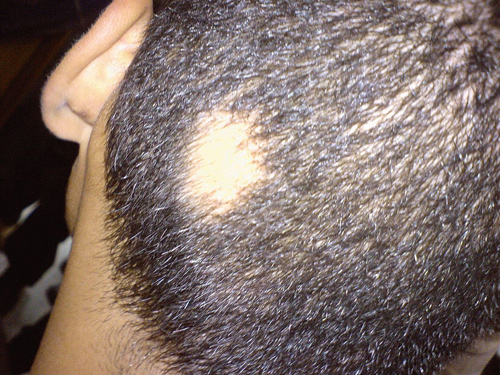
This condition manifests as spotty loss of hair in oval or round areas of the scalp and sporadically on other body parts. In the minority, the hairless areas enlarge until the entire scalp becomes bald, and in fact, may progress to involve hair regions of the whole body. This disease is thought to be autoimmune and can be associated with thyroid disease, pernicious anemia, vitiligo, Addison’s disease, and Down’s syndrome.
Although this disorder may benefit from the following herbs, a trained physician’s attention is required to prevent total hair loss. Treatment can include topical steroids, local injection of steroids, the introduction of irritant dermatitis, localized PUVA, or immunomodulation.
Male Pattern Baldness
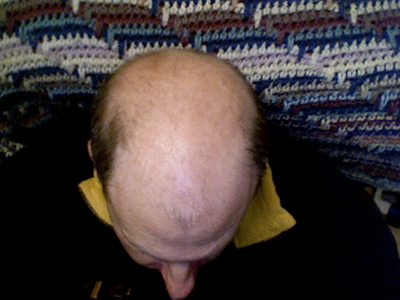
This condition is the progressive loss of hair that begins at the temples and later on the head’s crown. Hair loss continues until the bald areas fuse. Occasionally, the entire scalp becomes bald, but usually, hair remains on the head’s sides and back. It also occurs in women some fifteen to twenty years later but is generally not as severe.
Heredity (from the mother’s side), the level of androgens (male hormones), the follicle’s response to androgens, and aging appear responsible. To date, no particular cure has been found. The many creams and lotions on the marketplace purporting to grow hair are ineffective. Topical minoxidil (“Rogaine“) can help early cases with a variable response in 20 to 25 percent of people. Hair transplants and scalp reductions are helpful in good candidates and are the only permanent solution. Artificial “hair” should not be used.
Stress-Related Hair Loss (Telogen Effluvium)
This condition is a temporary hair loss two months after a stressful event. Stress alters the hair cycle from the growth to the resting phase. Following the hair loss, the growth phase resumes, and the hair is restored. Many possible causes exist, such as psychological stress, surgery, acute illness, high fever, pregnancy, and drugs.
Other causes of hair loss include exposure to certain drugs, especially those used to treat cancer (cytotoxic); excessive intake of vitamin A; the habit of pulling the hair, such as too-tight ponytails (traction hair loss); chemicals used for curling and straightened hair; thyroid disorders; and diseases of the scalp. The hair growth generally resumes when the causative factor is removed.
Top Herbs for Hair Loss
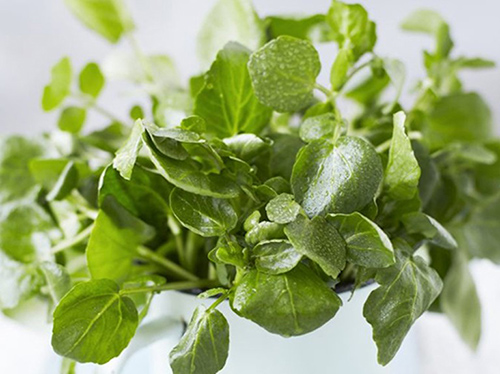
1. WATERCRESS: This plant regenerates the skin and prevents hair loss when applied to the scalp. The best way to take advantage of this herb’s medicinal properties is via a poultice with mashed cooked watercress along with lotions using the juices.
2. NETTLE: Thanks to this herb’s soothing effect, it is an excellent remedy for skin and hair loss afflictions. The best usage of this herb is via lotions or compresses of fresh juice on the scalp. Infusions of the plant are also recommended.
3. VENUS’ HAIR: This plant strengthens hair, which prevents its loss, and in some cases, it makes hair grow again. Take advantage of this herb’s medicinal properties by creating poultices with the mashed plant.
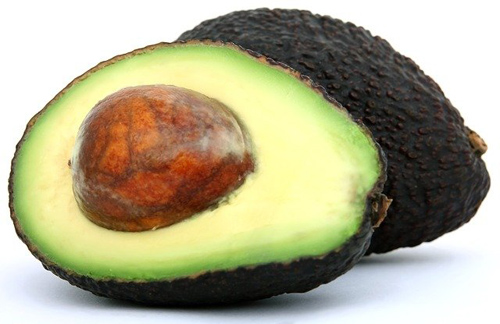
4. CASTOR BEAN: This plant’s oil and seeds have emollient and healing properties. It can be used to fight hair loss both in the form of lotions and in poultices.
5. AVOCADO: Avocado stops hair loss progression and gives it strength and softness. Also, it eliminates dandruff. You can use this herb for hair loss using a lotion with avocado oil.
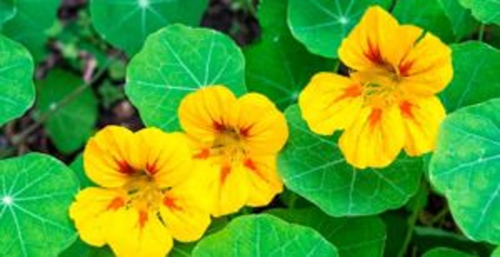
6. CINCHONA: This plant is an excellent hair invigorator. When applied as compresses, it renders good results in certain types of hair loss. You can also utilize a decoction of the bark.
7. NASTURTIUM: This plant is one of the best herbs for hair loss because it stimulates the hair bulb (the root of the hair), revitalizing it and even making it grow again. Hence, nasturtium is one of the plants most used in herbal supplements for hair loss. To enhance its effects, you should shave your head before applying it.
DISCLAIMER: All content on this website is presented solely for educational and informational objectives. You should not rely on the information provided as a replacement for advice, diagnosis, or treatment from a qualified medical expert. If you are pregnant, nursing, or have any preexisting medical concerns, you should talk to your doctor before using any herbal or natural medicines.
REFERENCES
- George D. Pamplona-Roger, M.D. “Encyclopedia of Medicinal Plants.” George D. Pamplona-Roger, M.D. Encyclopedia of Medicinal Plants. Ed. Francesc X. Gelabert. vols. 1 San Fernando de Henares: Editorial Safeliz, 2000. 270, 279, 293. Print.
- George D. Pamplona-Roger, M.D. “Encyclopedia of Medicinal Plants.” George D. Pamplona-Roger, M.D. Encyclopedia of Medicinal Plants. Ed. Francesc X. Gelabert. vols. 2 San Fernando de Henares: Editorial Safeliz, 2000. 531, 688, 720, 753, 773. Print. (herbs for hair loss)
- Hardinge, Mervyn G and Harold Shryock. “Family Medical Guide.” Hardinge, Mervyn G and Harold Shryock. Family Medical Guide. Ed. Marvin Moore and Bonnie Tyson-Flynn. Vol. three. Oshawa; Washington, D.C.; Hagerstown: Pacific Press Publishing Association; Review and Herald Publishing Association, 1999. Three vols. 269, 270. Print. [herbs for hair loss]
